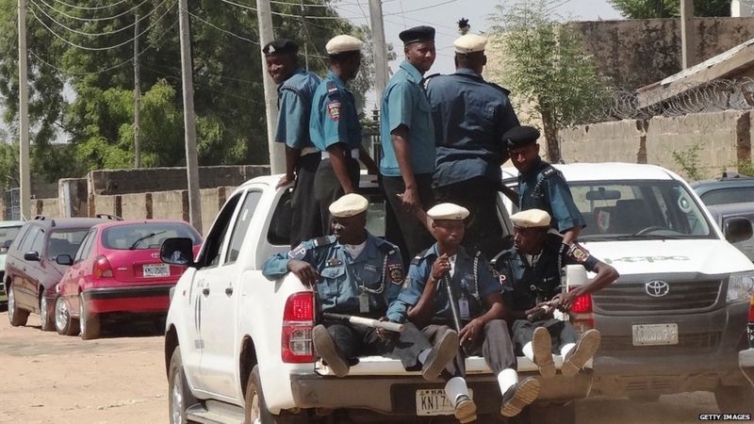The director of the Auschwitz Memorial in Poland has offered to serve part of the 10-year jail sentence given to a 13-year-old Nigerian boy for blasphemy.
Dr Piotr Cywinski said he and another 119 volunteers from all over the world would each serve a month in prison.
He personally asked Nigerian President Muhammadu Buhari to pardon the boy.
The boy was convicted by an Islamic court of making uncomplimentary remarks about God during an argument with a friend in Kano state in August.
The boy's lawyer later appealed against the sentence, saying it violated children's rights and Nigeria's constitution. He told the BBC that no date had been set for the appeal to be heard in court.
Kano is one of 12 Nigerian states practising the Sharia legal system alongside the country's secular laws.
Muslims form the majority in the north of the country.
The UN children's agency Unicef has called on the Nigerian authorities to urgently review the court's decision.
What did the Auschwitz Memorial's director say?
In a letter to President Buhari, Dr Cywinski wrote he was ready to share part of the boy's sentence.
"Regardless of what he said, he cannot be treated as fully aware and responsible, given his age.
"He should not be subjected to the loss of the entirety of his youth, be deprived of opportunities, and stigmatized physically, emotionally, and educationally for the rest of his life.
"However, if it turns out that the words of this child absolutely require 120 months of imprisonment, and even you are not able to change that, I suggest that in place of the child, 120 adult volunteers from all over the world, gathered by us - myself personally among them - should each serve a month in a Nigerian prison.
"In total, the price for the child's transgression will be the same, and we will all avoid the worst," Dr Cywinski wrote.
It is unusual for the Auschwitz Memorial to comment on such cases.
The Nigerian president has so far made no public comments on the issue.
The Auschwitz-Birkenau Memorial and Museum is situated on the site of the former Nazi concentration camp in Poland where at least 1.1 million people were systematically murdered. Almost one million were Jews.
How Nigeria's Sharia courts work
Twelve states in Nigeria's Muslim-dominated north operate the Sharia system of justice, but only Muslims can be tried in its courts.
The Sharia system, which also has its own Court of Appeal, handles both civil and criminal matters involving Muslims and its judgements can also be challenged in Nigeria's secular Courts of Appeal and the Supreme Court.
The Sharia judges, known as "alkalis", are learned in both Islamic and secular laws.
If a case involves a Muslim and a non-Muslim, the non-Muslim has the option of choosing where they want the case to be tried. The Sharia court can only hear the case if the non-Muslim gives written consent.
Sentences handed down by the courts include floggings, amputations and the death penalty.
Latest Stories
-
I have been paid with malt drink and meat pie after performing – Kofi Sarpong
9 mins -
Cedi to bounce back to appreciating trajectory soon – Fitch Solutions
40 mins -
Dumsor: Finance ministry failed to pay power generators over GH₵1.2 billion under the CWM – PURC report
40 mins -
Toddler mauled by dog undergoes successful plastic surgery
53 mins -
Pepsodent champions with #TalkToADentist initiative at World Oral Health Day 2024
60 mins -
Otumfuo holds mega food fair for queen mothers
1 hour -
ACEP supports ECG privatisation to make its operations efficient
1 hour -
Only the Energy Minister can authorise publication of load-shedding timetable – Osafo-Maafo
1 hour -
Joyce Bawah Mogtari: Why Naana Jane
1 hour -
CAF Confederation Cup: Dreams FC announce free gate for Zamalek second leg clash
1 hour -
Court issues arrest warrant for former MASLOC CEO Sedina Tamakloe
2 hours -
Yorktown FC to conduct talent scouting on June 1
2 hours -
Rising from the Ashes: Jonina Ladies’ remarkable turn under Joseph Osei Owusu
2 hours -
Mrs. Stella Dovlo (Nee Agbanyo)
2 hours -
aYo Ghana wins 3 laurels at Ghana Finance Focus Awards
2 hours

